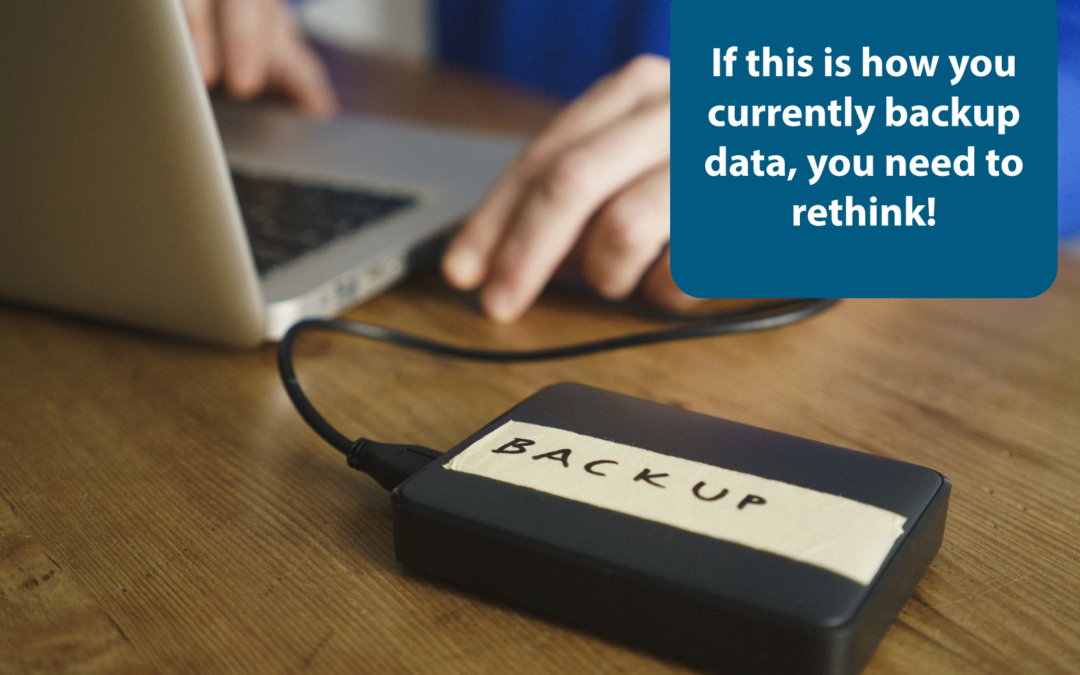No matter how robust your IT systems are, they are under constant threat of disruption and downtime. Ransomware and other cyberattacks, power outages, equipment failures, and natural disasters can all take your IT systems out of the game. However, a robust managed cloud backup solution could be the difference between recovery and disaster.
As we all know, system outages are bad news for your business, causing data loss and many associated negative consequences. Therefore, backing up your data is an absolute must have. If you fall victim to one of the advanced viruses that are frequently released, backups are often the only way you can restore or recover your data.
What is Cloud Managed Backup?
Cloud managed backup is a service that copies your data and applications and saves a duplicate or mirror version on a secondary, off-site location. If your primary data is lost, you can retrieve the copy from your backup server, which a third-party service provider usually hosts. Providers charge for the service using a subscription model, and fees are based on storage space used, user numbers, server numbers of the number of times the data is accessed.
Why Cloud Managed Backup Wins Every Time
Traditionally, businesses took a DIY approach to backing up their data by manually taking and transferring copies onto a separate, on-premises server or tape. However, backup has evolved significantly and is now available as a cloud-based service known as Cloud Managed Backup. Like most cloud services, modern backup services have several benefits that make them a clear winner over legacy approaches.
The Four Key Benefits of Cloud Managed Backup
Benefit 1: Better cost control
Unlike traditional backup solutions that require purchasing, maintaining, and upgrading expensive storage equipment up-front. This means that, like most cloud services, cloud managed backup services are charged based on usage making them highly cost-effective and scalable.
They are charged based on how you use them and you only pay for what you need. As your business grows, you can scale your backup services to suit your needs without buying, running, and maintaining expensive new storage equipment, which means no more capital expenditure and no more technical debt.
For most businesses being able to invest in their IT as an OPEX (Operational Expense) rather than a CAPEX (Capital Expense) helps them to protect cash flow and plan budgets more effectively moving forward.
Benefit 2: Minimises downtime
Ransomware attacks are continuing to be a growing threat for businesses of all sizes. These attacks lock your files and valuable business data and demand a ransom in return for their release. They are so advanced that often if you are attacked and have no backup, the only way to get your data back is to pay the cybercriminals the ransom to release your files.
However, with cloud managed backup, you can significantly minimise downtime caused by such attacks. if your files are stolen and locked in a ransomware attack, you can easily use your backup data and operate as usual without paying the ransom.
By having regular and automated backups stored securely in the cloud, you can quickly recover your data and maintain business continuity, reducing the financial, operational, and reputational damage caused by downtime.
Benefit 3: You don’t have to worry about compliance issues
Compliance requirements pose significant and complex IT challenges for organisations, especially those operating in regulated industries such as finance and insurance. However, cloud managed backup services can alleviate this burden as your service provider assumes the responsibility of ensuring compliance with relevant regulations and standards.
By leveraging the expertise and infrastructure of the provider, you can offload the complexities of IT compliance, such as data encryption, access controls, and data retention policies. This allows you to focus on your core business activities, knowing that your backup solution is meeting the necessary compliance requirements.
Benefit 4: Reliable data recovery
With cloud backup, you have a dedicated team overseeing your service, securing your network, and monitoring threats to your data security. If your data is lost, your provider will get straight to work recovering lost files and restoring your systems, giving you peace of mind knowing that your data is in capable hands.
In the event of data loss due to hardware failures, human error, cyber security breaches, or other unforeseen circumstances, your service provider will initiate the data recovery process. They recover lost files and restore your systems to pre-failure positions. This minimises downtime, establishes business continuity, and ensures that your business operations can resume quickly with minimal negative impact on data loss and productivity.
Should I move to a Cloud Managed Backup Solution?
If you’re considering modernising your data backup solution and looking for something more scalable, cost-effective and secure, cloud managed backup needs to be at the top of your list. Discover how our solutions include 24×7, fully-managed monitoring, data encryption, a minimum of 30 days retention period as standard and more by visiting our cloud managed backup page.

